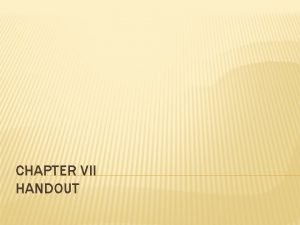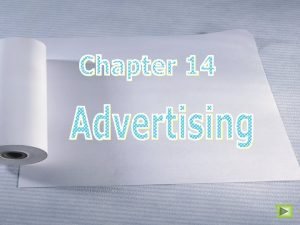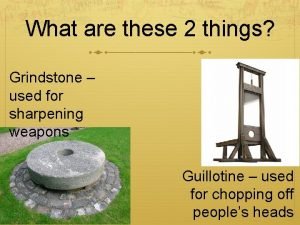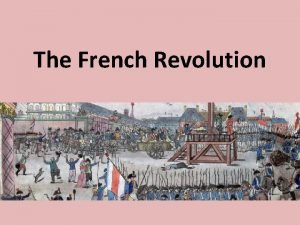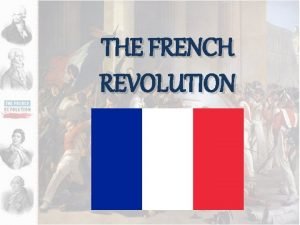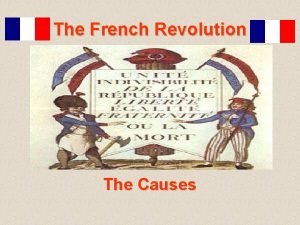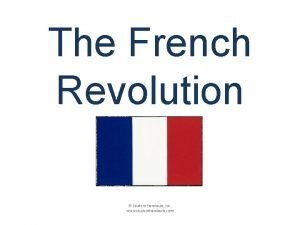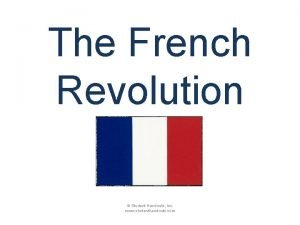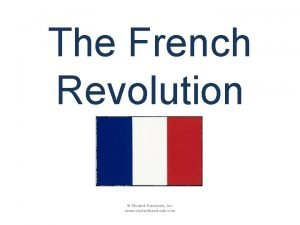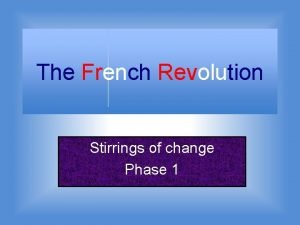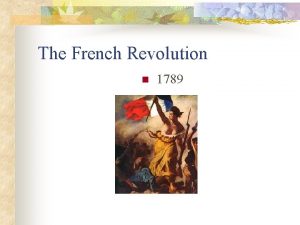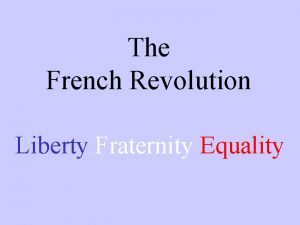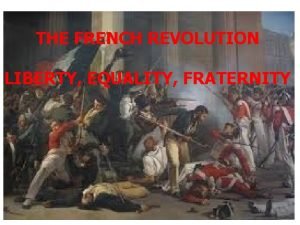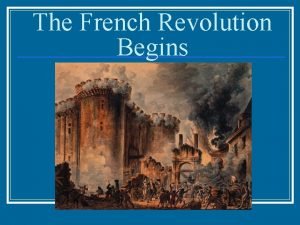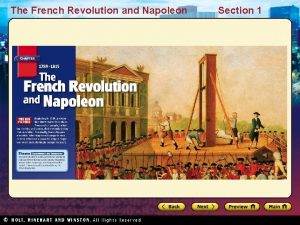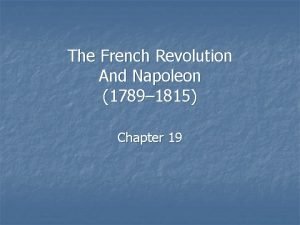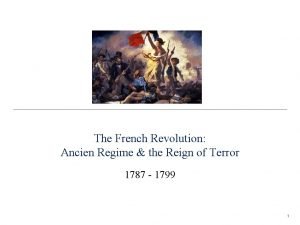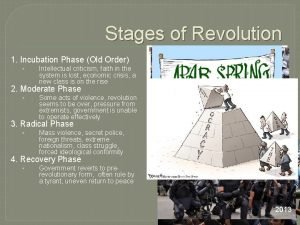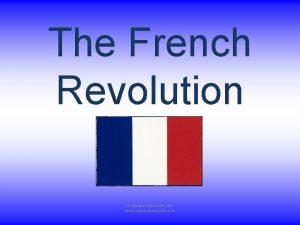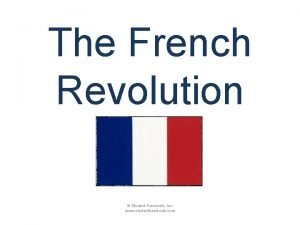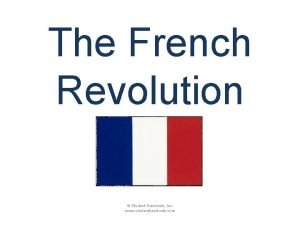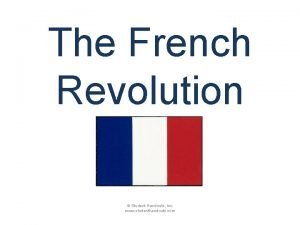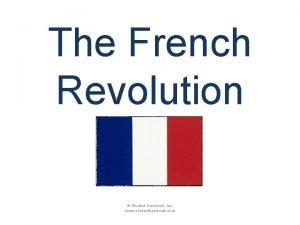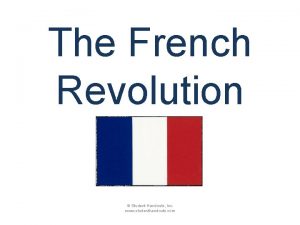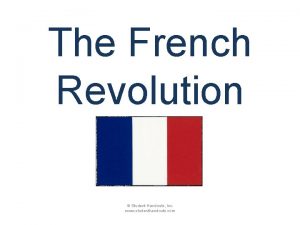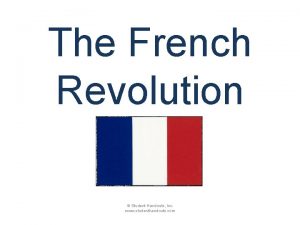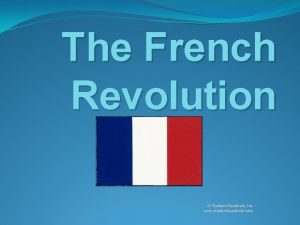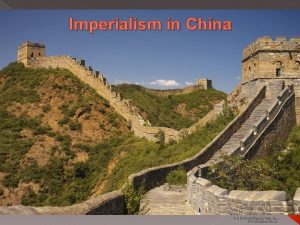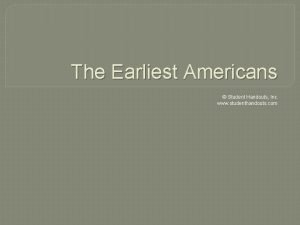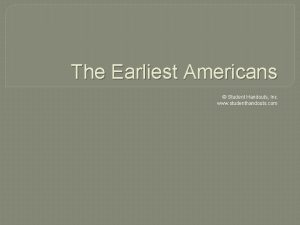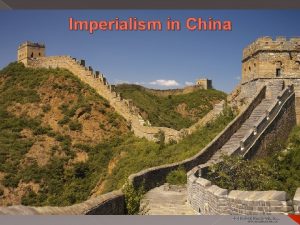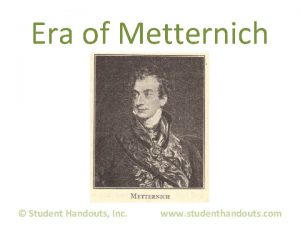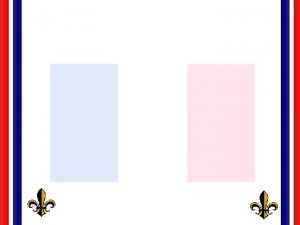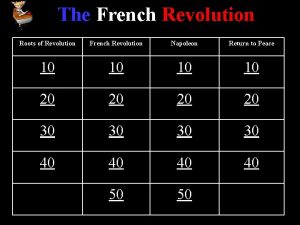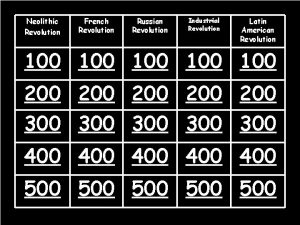The French Revolution Student Handouts Inc www studenthandouts








































- Slides: 40

The French Revolution © Student Handouts, Inc. www. studenthandouts. com


The Old Regime (Ancien Regime) • Old Regime – socio-political system which existed in most of Europe during the 18 th century • Countries were ruled by absolutism – the monarch had absolute control over the government • Classes of people – privileged and unprivileged – Unprivileged people – paid taxes and treated badly – Privileged people – did not pay taxes and

Society under the Old Regime • In France, people were divided into three estates – First Estate • High-ranking members of the Church • Privileged class – Second Estate • Nobility • Privileged class – Third Estate • Everyone else – from peasants in the countryside to wealthy bourgeoisie merchants in the cities • Unprivileged class

Absolute Monarchy • Throughout history people have been ruled by authoritarian kings- they expected total obedience • At the end of the Middle Ages, power was held solely by the monarch- a government that with a monarch at the head (royal family) • “absolute” monarchs usually did not have total power over all the people • They did not interfere with the nations’ social and cultural institutions and traditions • One of the most famous absolute monarchs was Louis XIV of France

Government under the Old Regime: The Divine Right of Kings • Monarch ruled by divine right – God put the world in motion – God put some people in positions of power – Power is given by God – No one can question someone put in power by God – Questioning the monarchy was blasphemy because it meant questioning God

Economic Conditions under the Old Regime • France’s economy was based primarily on agriculture • Peasant farmers of France bore the burden of taxation • Poor harvests meant that peasants had trouble paying their regular taxes – Certainly could not afford to have their taxes raised • Bourgeoisie often managed to gather wealth – But were upset that they paid taxes while nobles did not

France Is Bankrupt • The king (Louis XVI) lavished money on himself and residences like Versailles • Queen Marie Antoinette was seen as a wasteful spender • Government found its funds depleted as a result of wars – Including the funding of the American Revolution • Deficit spending – a government spending more money than it takes in from tax revenues • Privileged classes would not submit to being taxed

Philosophy of the French Revolution: The Enlightenment (Age of Reason) • Scientists during the Renaissance had discovered laws that govern the natural world • Intellectuals – philosophes – began to ask if natural laws might also apply to human beings – Particularly to human institutions such as governments – Philosophes were secular in thinking – they used reason and logic, rather than faith, religion, and superstition, to answer important questions – Used reason and logic to determine how governments are formed • Tried to figure out what logical, rational principles work to tie people to their governments – Questioned the divine right of kings

Long-term Causes of the French Revolution Everything previously discussed • Absolutism • Unjust socio-political system (Old Regime) • Poor harvests which left peasant farmers with little money for taxes • Influence of Enlightenment philosophes Also • System of mercantilism which restricted trade • Influence of other successful revolutions • England’s Glorious Revolution (16881689) • American Revolution (1775 -1783)

Short-term Causes of the French Revolution Bankruptcy Great Fear Estates-General • Caused by deficit spending • Financial ministers (Turgot, Necker, Calonne) proposed changes • But these were rejected • Assembly of Notables voted down taxation for the nobility in 1787 • Worst famine in memory • Hungry, impoverished peasants feared that nobles at Estates. General were seeking greater privileges • Attacks on nobles occurred throughout the country in 1789 • Louis XVI had no choice but to call for a meeting of the Estates-General to find a solution to the bankruptcy problem • All three estates • Had not met since 1614 • Set in motion a series of events which resulted in the abolition of the monarchy and a completely new socio -political system for France

Meeting of the Estates-General: May 5, 1789 • Government nearly bankrupt • Louis XVI wanted to impose a tax, but nobility would not agree • French nobles insisted Louis call the Estates General- which had not been called in over 170 yrs. • Louis knew that this would jeopardize his absolute authority but he had not choice • Voting was conducted by estate – Each estate had one vote – First and Second Estates could operate as a bloc to stop the Third Estate from having its way ◊ First Estate + ◊ Second Estate - vs. - ◊ Third Estate • Representatives from the Third Estate demanded that voting be by population – This would give the Third Estate a great advantage • Deadlock resulted

History of the Kings of France

Louis XIV At 23 yrs old took personal control of the affairs of the state He was known for his display of pomp and splendor He had the longest reign of any king in history 70 yrs! He chose the sun as the symbol of his reign Became known as the “Sun King” He was the epitome of an absolute ruler

Louis XV Grandson of Louis XIV Inherited throne after Louis XIV died He was a weak ruler Concerned more with his personal pleasure He did realize that the “old regime” was in trouble On his deathbed he said: “ Apres moi le deluge”- After me the deluge. In 1774 France was in desperate need of a leader

Louis XVI was the last king of France in the line of Bourbon monarchs preceding the French Revolution Came to the throne in 1774 Completely unfit for the task of leading a nation In 1770, he married Austrian archduchess Marie-Antoinette, the daughter of Maria Theresa and Holy Roman Emperor Francis I. He was executed for treason by guillotine in 1793.

Marie Antoinette • As part of an alliance pact between Austria and France. Marie Antoinette was pledged to Louis XVI in marriage • She married at the age of 15 • Became queen at 19 • Marie Antoinette helped provoke the popular unrest that led to the French Revolution and to the overthrow of the monarchy • She became a symbol of the excesses of the monarchy


Abolishment of the Monarchy • The National Convention abolished the monarchy – As long as the royal family lived, the monarchy could be restored – Put the royal couple on trial for treason • Convictions were a foregone conclusion – Louis XVI was guillotined on January 21, 1793 – Marie Antoinette was guillotined on October 16, 1793 – Daughter Marie-Thérèse was allowed to go to Vienna in 1795 • She could not become queen because of Salic law, which did not allow females to succeed to the throne – Son Louis-Charles, a. k. a. Louis XVII (lived 17851795) was beaten and mistreated until he died in prison – Revolution ends with the rise of a new regime led by


Preparing for the Estates. General • Winter of 1788 -1789 – Members of the estates elected representatives • Cahiers – Traditional lists of grievances written by the people – Nothing out of the ordinary • Asked for only moderate changes

Tennis Court Oath The Third Estate declared itself to be the National Assembly. Louis XVI responded by locking the Third Estate out of the meeting. The Third Estate relocated to a nearby tennis court where its members vowed to stay together and create a written constitution for France. On June 23, 1789, Louis XVI relented. He ordered the three estates to meet together as the National Assembly and vote, by population, on a constitution for France.

Tennis Court Oath by Jacques Louis David

The Tennis Court Oath “The National Assembly, considering that it has been summoned to establish the constitution of the kingdom, to effect the regeneration of the public order, and to maintain the true principles of monarchy; that nothing can prevent it from continuing its deliberations in whatever place it may be forced to establish itself; and, finally, that wheresoever its members are assembled, there is the National Assembly; “Decrees that all members of this Assembly shall immediately take a solemn oath not to separate, and to reassemble wherever circumstances require, until the constitution of the kingdom is established and consolidated upon firm foundations; and that, the said oath taken, all members and each one of them individually shall ratify this steadfast resolution by

Four Phases (Periods) of the French Revolution National Assembly (1789 -1791) Legislative Assembly (1791 -1792) Convention (1792 -1795) Directory (1795 -1799)

National Assembly (1789 -1791) • Louis XVI did not actually want a written constitution • When news of his plan to use military force against the National Assembly reached Paris on July 14, 1789, people stormed the Bastille

Uprising in Paris People of Paris seized weapons from the Bastille Uprising spread throughout France • July 14, 1789 • Parisians organized their own government which they called the Commune • Small groups – factions – competed to control the city of Paris • Nobles were attacked • Records of feudal dues and owed taxes were destroyed • Many nobles fled the country – became known as émigrés • Louis XVI was forced to fly the new tricolor flag of France


Goodbye, Versailles! Adieu, Versailles! • Parisian Commune feared that Louis XVI would have foreign troops invade France to put down the rebellion – Louis XVI’s wife, Marie Antoinette, was the sister of the Austrian emperor • A group of women attacked Versailles on October 5, 1789 – Forced royal family to relocate to Paris along with National Assembly – Royal family spent next several years in the Tuileries Palace as virtual prisoners

Tuileries Palace (Paris, France)

End of Special Privileges • Church lands were seized, divided, and sold to peasants • Civil Constitution of the Clergy required that Church officials be elected by the people, with salaries paid by the government – 2/3 of Church officials fled the country rather than swear allegiance to this • All feudal dues and tithes were eradicated • All special privileges of the First and Second Estates were abolished

Reforms in Local Government • The 30 provinces and their “petty tyrants” (Intendants) were replaced with 83 new departments – Ruled by elected governors • New courts, with judges elected by the people, were established

Constitution of 1791 • Democratic features – France became a limited monarchy • King became merely the head of state – All laws were created by the Legislative Assembly – Feudalism was abolished • Undemocratic features – Voting was limited to taxpayers – Offices were reserved for property owners • This new government became known as the Legislative Assembly

Legislative Assembly (17911792) • Royal family sought help from Austria – In June, 1791, they were caught trying to escape to Austria • Nobles who fled the revolution lived abroad as émigrés – They hoped that, with foreign help, the Old Regime could be restored in France • Church officials wanted Church lands, rights, and privileges restored – Some devout Catholic peasants also supported the Church • Political parties, representing different interests, emerged – Girondists

Opposition to the New Government • European monarchs feared that revolution would spread to their own countries – France was invaded by Austrian and Prussian troops • In the uproar, the Commune took control of Paris – Commune was led by Danton, a member of the Jacobin political party • Voters began electing representatives for a new convention which would write a republican constitution for France – A republic is a government in which the people elect representatives who will create laws and rule on their behalf – Meanwhile, thousands of nobles were executed under the suspicion that they were conspirators in the foreign invasion

Convention (1792 -1795) • On September 22, 1792, the Convention met for the first time • Established the First French Republic • Faced domestic opposition and strife – Girondists were moderates who represented the rich middle class of the provinces – Jacobins (led by Marat, Danton, and Robespierre) represented workers • Faced opposition from abroad – Austria, England, Holland, Prussia, Sardinia, and Spain formed a Coalition invading France

Reign of Terror: September 5, 1793 -July 27, 1794 • Despite military successes, the Convention continued to face problems domestically • Danton and his Jacobin political party came to dominate French politics • Committee of Public Safety – Headed by Danton (and later Robespierre) – Those accused of treason were tried by the Committee’s Revolutionary Tribunal – Approximately 15, 000 people died on the guillotine • Guillotine became known as the “National Razor” • Including innovative thinkers like Olympe de Gouges

End of the Reign of Terror • Members of the Girondist political party tried to end the Reign of Terror initiated by the Jacobin political party – This opposition to the Committee of Public Safety caused many Girondists to be tried and executed for treason • Eventually, even Georges Danton wanted to end the executions – This resulted in Danton being tried and executed for treason • Maximilien Robespierre became leader of the Committee of Public Safety – He continued the executions – Convention came to blame Robespierre for the Reign of Terror • Thermidorean Reaction – July 27, 1794 – ended the Reign of Terror – Convention sent Robespierre and other members of the

Constitution of the Year III of the Republic (1795) • With the foreign invaders vanquished and the Reign of Terror at an end, the Convention was finally able to inaugurate its new constitution • Constitution of the Year III of the Republic (1795) created the Directory

Directory (1795 -1799) The Directory suffered from corruption and poor administration. The people of France grew poorer and more frustrated with their government. Despite, or perhaps because of, these struggles, the French developed a strong feeling of nationalism – they were proud of their country and devoted to it. National pride was fueled by military successes. It would be a military leader – Napoleon Bonaparte, coming to power through a coup d’état – who would end the ten-year period (1789 -1799) known as the French Revolution.
 Studenthandouts.com
Studenthandouts.com Student handouts.com
Student handouts.com Student handouts inc
Student handouts inc Russian revolution vs french revolution
Russian revolution vs french revolution Did american revolution cause french revolution
Did american revolution cause french revolution Zoo103 handouts pdf
Zoo103 handouts pdf How to write a jane schaffer paragraph
How to write a jane schaffer paragraph Sample of handouts
Sample of handouts Handouts gestalten
Handouts gestalten Cs408 handouts
Cs408 handouts Cs408 handouts
Cs408 handouts Vii meaning
Vii meaning Gapped handouts
Gapped handouts Advantages and disadvantages of handouts in teaching
Advantages and disadvantages of handouts in teaching Patient education handouts template
Patient education handouts template Disadvantages of newspaper
Disadvantages of newspaper Definition of third agricultural revolution
Definition of third agricultural revolution Grindstone french revolution
Grindstone french revolution Causes and effects of the french revolution
Causes and effects of the french revolution French revolution timeline
French revolution timeline Sophie of france (1786-1787)
Sophie of france (1786-1787) Committee of public safety
Committee of public safety 4 stages of french revolution
4 stages of french revolution Short term causes of the french revolution
Short term causes of the french revolution Short term causes of the french revolution
Short term causes of the french revolution Immediate cause of french revolution
Immediate cause of french revolution October 6 1789 french revolution
October 6 1789 french revolution Political causes in french revolution
Political causes in french revolution French revolution timeline
French revolution timeline Fraternity in french revolution
Fraternity in french revolution Borgiouse
Borgiouse Four phases of french revolution
Four phases of french revolution French revolution causes
French revolution causes The political and social system in france cartoon
The political and social system in france cartoon French revolution essential questions
French revolution essential questions The french revolution begins chapter 7 section 1
The french revolution begins chapter 7 section 1 Causes and effects of french revolution
Causes and effects of french revolution Four phases of the french revolution
Four phases of the french revolution Ancien régime
Ancien régime Economic causes of french revolution
Economic causes of french revolution Incubation stage of french revolution
Incubation stage of french revolution











